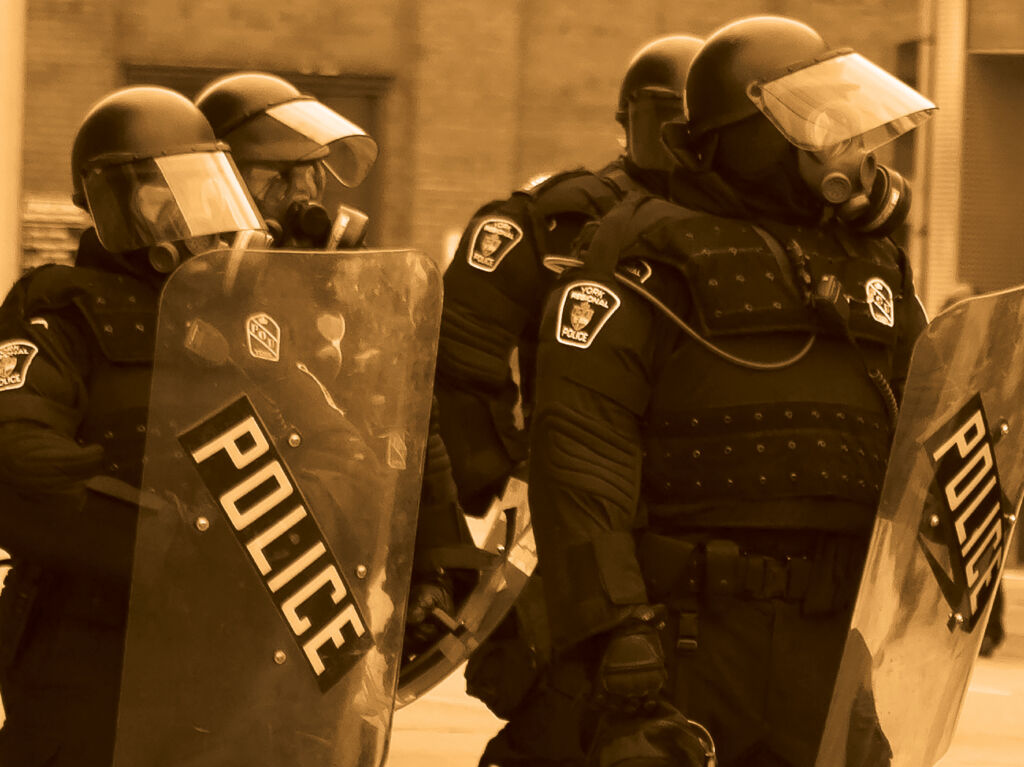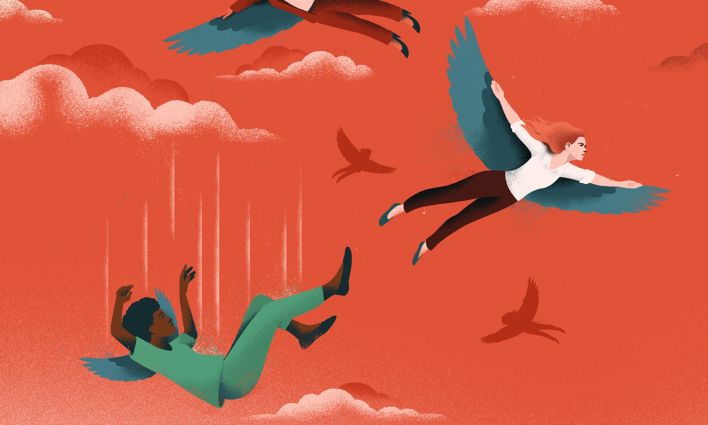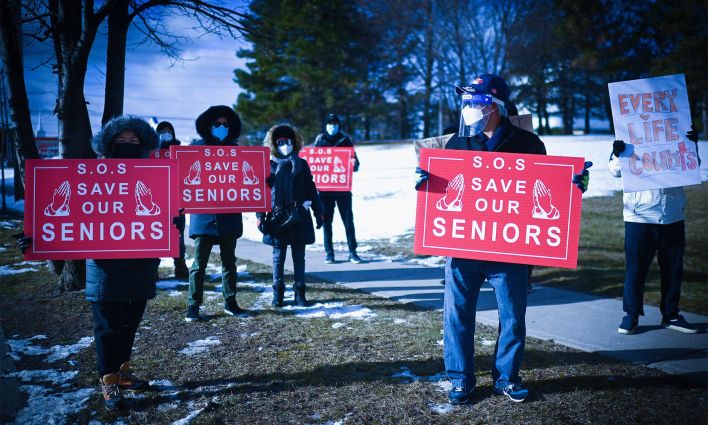Growing up, I never knew how amazing it was that I was able to live on a reserve. Looking back, I realize that my family never taught me words to speak to the systemic oppression we experienced as racialized Indigenous Peoples. The values and ideas I carried from my childhood into adulthood have been defined by possibility and opportunity: the freedom to do what I wanted with my life; the personal responsibility I have to my clan and nation; a sense of reciprocity and interdependence to the other clan families in our Confederacy; and the obligation to care for children and future generations.
I grew up at Six Nations of the Grand River, a Haudenosaunee community established following the Haldimand Proclamation of 1784, which affirmed the use and enjoyment of six miles on either side of the Grand River for the Haudenosaunee, forever. Today, the current boundaries of the reserve are limited to about 5% of the land set aside in the Haldimand Proclamation. Six Nations, along with the other Haudenosaunee communities, many of them also known as places of resistance—Kanesatake, Tyendinaga, Kahnawake—are like postage stamps along our broader traditional territory affirmed in the Nanfan Treaty of 1701.
Now, as an adult, I study and build policy informed by the historic and ongoing Haudenosaunee resistance to colonial violence. Within the Haudenosaunee worldview, everything starts with what we call our Original Instructions; the way we as humans are supposed to live here on earth, in balance with other living beings. Throughout our history, visionaries, historic events and treaties, build and express our philosophies and laws. Treaty making is iterative, informed by our laws given to us by our Creator, sacred gifts that are the inheritance of our grandchildren. It is their laws, lands and waters that we borrow. What we take, and use, comes at the expense of our children, and we have to preserve, using as little as we need to survive. It is an obligation, a burden, a sacred trust, to protect and conserve plants, animals, lands, and waters for future generations of Haudenosaunee children. This law binds us and pulls Haudenosaunee people to the frontlines of resistance across Turtle Island.

We sit in his car, parked on the side of the road in the dark. Haudenosaunee don’t eat in the dark, so the streetlight and interior lights are on. I haven’t seen my cousin in almost two weeks; we normally eat breakfast at the local diner, but his flight had come in late so we settled for burgers in the car.
He looks exceptionally tired, which isn’t new, but he seems too quiet, which is unusual. He has on a new coat that’s too big for him, his usual camouflage jacket had been ripped off him by the RCMP in the recent raid of Wet’suwet’en territory. We eat in a silence that is painful considering our usual laughter and teasing.
“Court… I need to tell you what they did to me,” he whispers.
Currently, the relationship between our nations exists on the frontlines, where our communities continue to face being forcibly removed from our lands.
In Ontario, police operations responding to Indigenous land defense actions are overshadowed by the death of Dudley George and the subsequent Ipperwash Inquiry. The Ontario Provincial Police operate under the Framework for Police Preparedness for Indigenous Critical Incidents which sets out an Indigenous specific response by police that includes the use of the Provincial Liaison Teams (PLT).
Skyler Williams, spokesperson for 1492 Land Back Lane has been an activist on the frontlines of Indigenous land defense actions, including his most recent arrest during a raid in Wet’sewet’en territory.
“The oddest one out of all of them is one PLT, he always tries to talk like he’s my friend. This last time the roads opened up, he sent me a picture of himself, sitting in a hunting blind, saying it’s a beautiful day. It’s a picture of him, with his gun, and the bush, like he’s my buddy or something. It’s one of those things, they’re always finding a way to infiltrate communities so they can utilize those relations to put Indians in jail.”
“I’ve been around communities for the last 20 years and I’ve seen these guys come in and just stir up [shit] and have really caused lasting impacts in the community by exploiting those divisions. They found a tactic that works.“
“Police gather intelligence in our communities, so they can befriend us, so we will openly tell them things, and that’s the most disgusting part of it. They try to convince our people, by lying, in whatever underhanded way, to convince our own people and in the greater good to rat out your friends. It’s real sleazy stuff.”
“People get it twisted in their heads, when a guy shows up without a gun, uniform or badge, and it’s just some dude, and they generally try to make it an Indian that’s standing in front of you. And they talk to you differently. Other people who don’t understand what policing or gathering evidence looks like, just think it’s some dude, who don’t understand their whole job is to put Indians in jail for standing up for the land. I’ve heard and talked to so many people in our community who have openly given them information about things because they thought it was the right thing to do, or they thought they were just having a conversation with another person.”
“The way of coming into our nations and pulling at the seams of our communities to see where we will fall apart is a pretty disgusting tactic in the age of truth and reconciliation and all the bullshit they try and spin.”

A police vehicle pulls out behind us as we pull out of the restaurant.
“They’re following us, they know I’m in your car,” I tell her, “they’re going to pull us over.”
“They’re not going to pull us over, you didn’t do anything wrong,” she says.
“I was at Land Back, it doesn’t matter why I was there, they don’t care, they’ll arrest me,” I plead.
My auntie turns on her signal to indicate we are turning onto the road that runs alongside the river.
“Oh what the hell, they are pulling me over!” she exclaims.
“I told you, I’m going to get arrested, they’ve been following me since I left the site.” I plead further. I look at the river. Maybe if I run, I can make it to the water. It would be harder for them to arrest me. If they kill me, they’d have to drag my body from the river.
“It’s okay, I am not going to let them take you,” she reassures me as her vehicle slows down, “I’ll talk to them, it will be okay.”
My auntie pulls her car to a stop on the side of the road, the police vehicle already stopped behind her, an officer running up to her vehicle. She puts the car in park, the doors automatically unlock, and the police officer pulls open the door.
“Passenger, you are under arrest.”

For Haudenosaunee, our first treaties with the Dutch talk about our relationship to one another, based on mutual respect. For peace to exist between our nations, the Guswentah, or Two Row Wampum belt, speaks of peace, friendship, and trust existing between our nations. From the Guswentah, the Silver Covenant Chain, which anchors the British Crown to the Haudenosaunee Tree of Peace. This chain is made of silver, because silver, like relationships, require care to be maintained. Polishing the chain is a metaphor used to describe how our nations will work together in our relationship in order to have peace between our nations.
Currently, the relationship between our nations exists on the frontlines, where our communities continue to face being forcibly removed from our lands. We have ignored the past and failed to make things right. The resistance of Indigenous people, their memory of history, treaty, law, and land stewardship are met with police violence. If a tarnished silver chain is being polished, it is because it is being pulled so tight with so much friction the rust is rubbing off from tension.
Denying the need to change the relationship between the Haudenosaunee and the Crown has become too apparent to my nation. True reconciliation will reshape Canada, retell history, and redraw provincial boundaries in order to respect the true human dignity of Indigenous nations.

Courtney Skye was arrested September 3, 2020 for mischief and disobeying a court order. She was arrested again on March 25, 2021 for breaching conditions. Her charges were withdrawn by the Crown on October 12, 2021 with no admittance of guilt. Approximately 50 people have been arrested in relation to 1492 Land Back Lane. To date, approximately 40 of those charged have had their charges withdrawn by the Crown with no admittance of guilt.








